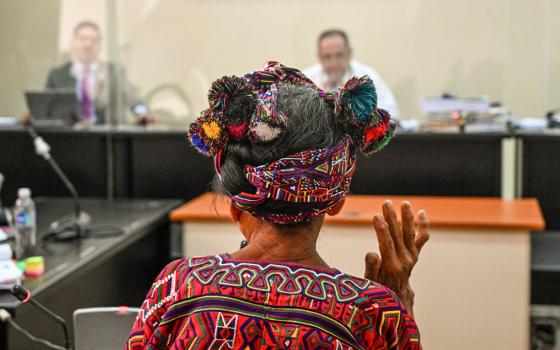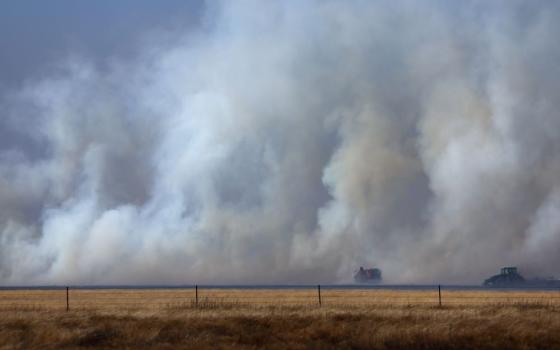All this week, we are looking at Ex corde Ecclesiae, the encyclical of Pope John Paul II on Catholic higher education that celebrates its twentieth birthday this Sunday. I had originally thought only to do a couple of posts on the subject. Perhaps it is my being on vacation in Connecticut where I can take long walks, it seems we will be focusing on the subject in these pages all week.
Perhaps no issue is more central to the debate over Catholic identity, more contentious in terms of the relationship between ecclesiastical authority and the academy, and more given to ideological posturing than that of the mandates required to teach theology. “It is necessary that those who teach theological disciplines in any institute of higher studies have a mandate from the competent ecclesiastical authority,” states the text, unambiguously enough. Is this right?
To be equally unambiguous, yes it correct. And here is why. Most importantly, if morality is something we discern through the interaction of our conscience with the world around us, what we know about God is received. The act of reception is not a truly passive act, any more than God’s act of revelation was passively received by the first apostles. They questioned, doubted and denied the Lord as much as they followed, listened and loved Him. But, what seems to me undeniable is this: No scholar starts the writing of theology without being totally dependent upon the Church for bringing him or her the self-revelation of God in the first place. You may have tenure, but you have no special claim on the divine self-revelation apart from the Church. The Church established the canon of Scripture. The Church passed on those early liturgical traditions and prayers that continue to shape and define Christian worship. The Church convoked the early, great Ecumenical Councils that gave dogmatic shape to our faith. The Church has maintained, fitfully of course, and never too far removed from the ills and the sins of the age, the deposit of faith which is the datum upon which theologians build their work.
Bring me the greatest theologian in the history of the world, and I shall show you someone incapable of knowing what men and women of future generations will think of the atrocious limits which time and culture placed upon him. Bring me the most comprehensive theologian of the age, and she will not be able to know what parts of the revelation were opaque to her because, living at this moment in history, the questions of others were unasked and therefore unanswered today. If it is true that Catholic theologians always belong to a community, that while Protestant theology can produce stars, Catholic theology produces schools, it is even more true that the community of Catholic theology is not limited to those theologians who can show up at an annual meeting. Theology is in dialogue with the great theologians of yesteryear as well. Theologians may not be saints, but the doctrine of the communion of saints applies to them too. As Chesterton once said, tradition is the democracy of the dead. If the premise of democracy is that no man should be penalized because of the accident of his birth, tradition holds that no man should be penalized because of the accident of his death.
I stray. Back to the mandate. Theology is an intrinsically ecclesial task. A Buddhist can fulfill the requirements for a degree in religious studies focused on the Catholic Church, but he cannot do Catholic theology. That requires acceptance of the datum of revelation brought by the Church. Only a believer has access to that datum. A non-believer can study how Christians celebrate the Incarnation, but only a believer can grasp it theologically. It is not just that imagination only leads one so far, it is that theology demands a stance, it is allergic to disinterestedness. The best theology not only stretches one mind, it strengthens one’s belief. It is faith seeking understanding. It is not, “Oh, I had this nifty thought today and….” It starts with, it presupposes, faith.
Our theological tradition in the Christian Church could scarcely be richer. I am no fan of Luther but will readily grant that he was the greatest theologian of his age and we ignore his insights at our intellectual peril. I have spent much of the last 18 months studying the writings and doings of the Reverend Jerry Falwell, and his way of being a Christian was different from my way of being a Christian, but his way was distinctive, true, forceful, and compelling to millions of his fellow Christians. We can welcome the insights of other intellectual disciplines, but theology is not a sociology of the religious mind, nor a divinized philosophy, it is theology, the study of the Divine. An atheist can do many things; He cannot do theology. The Church is right to understand that those who do theology in the name of the Church undertake an ecclesial task as well as an academic one. No one gets to be a professor without the approval of his or her peers. No one should get to be a theology professor without the approval of his or her Church.




